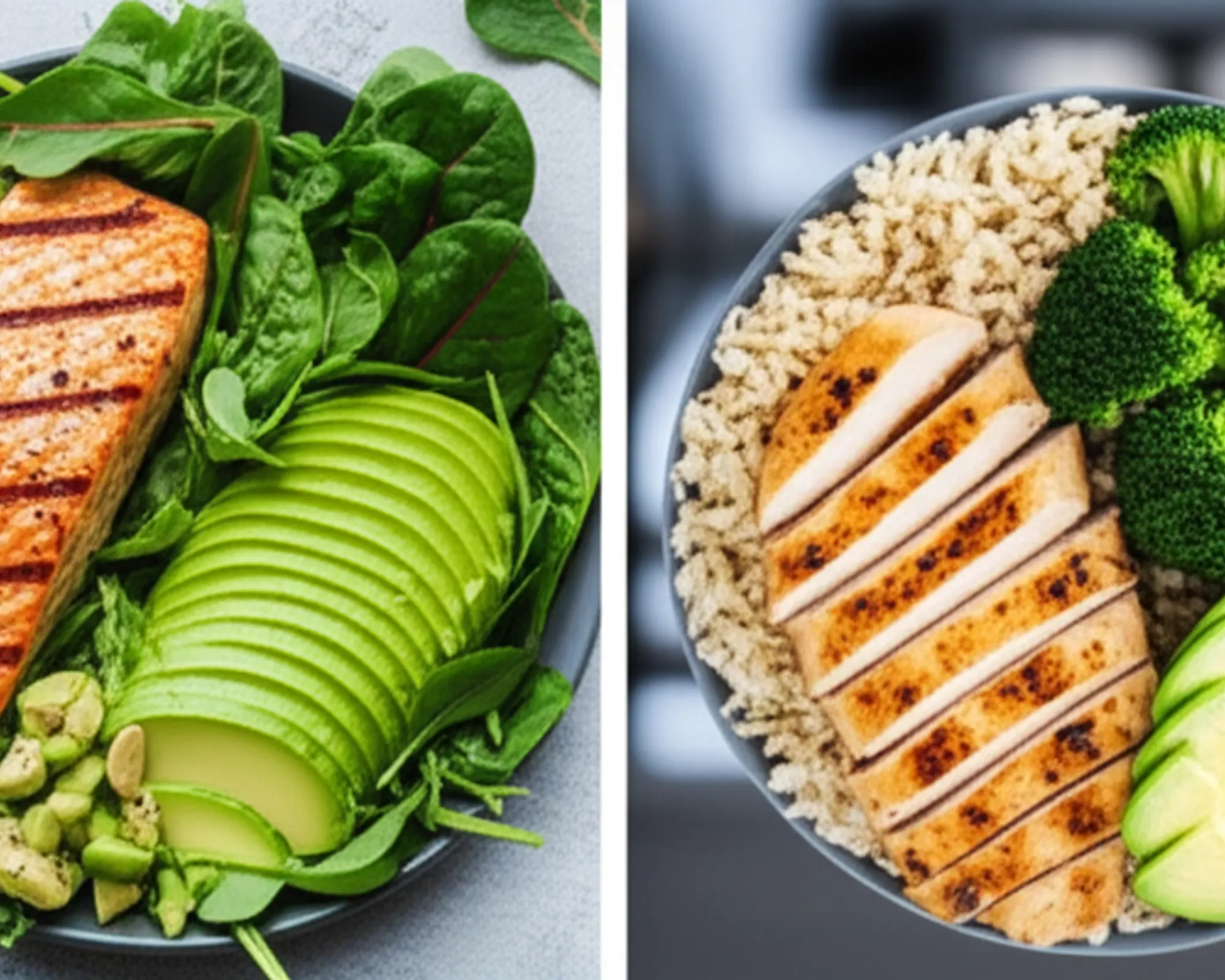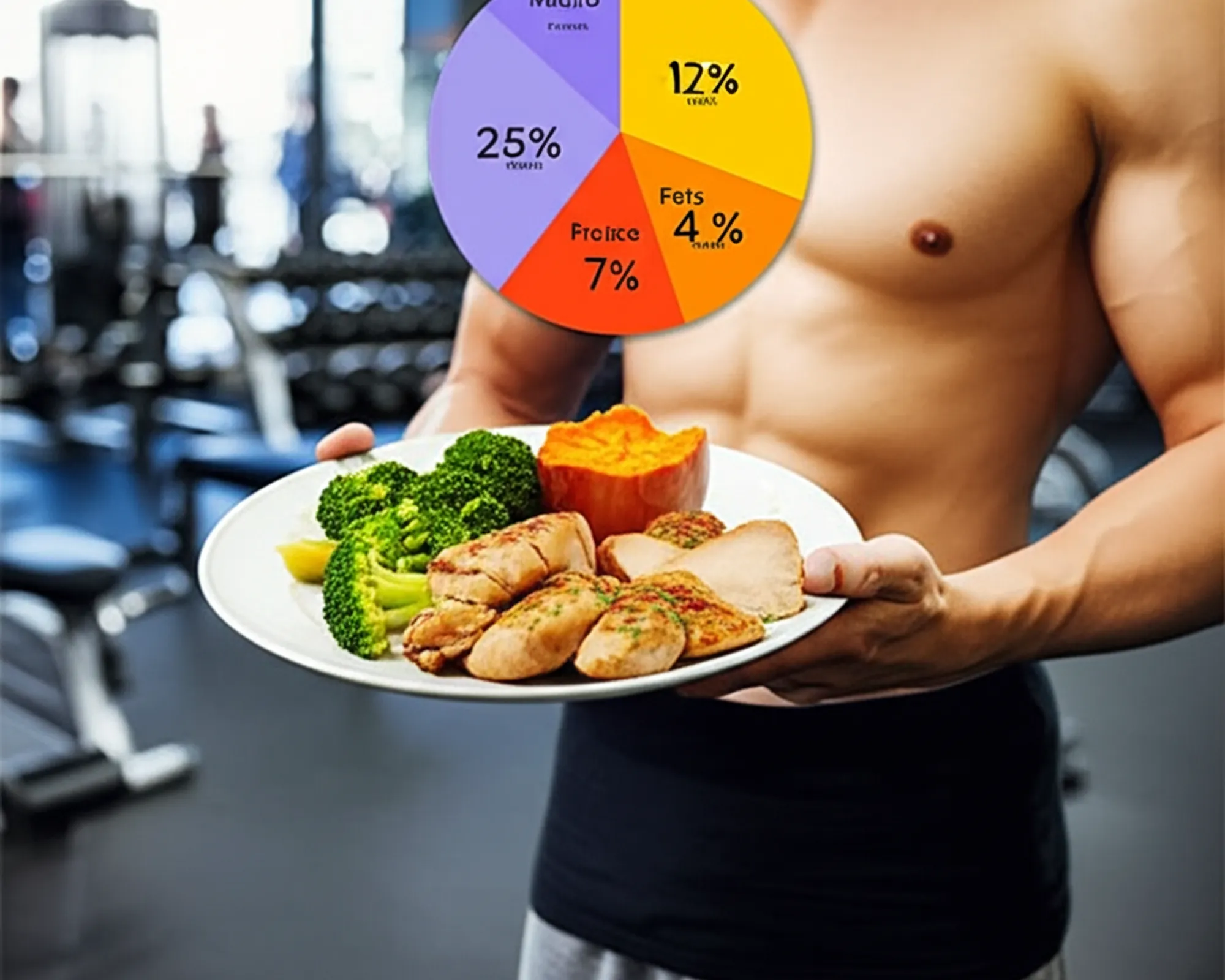Bulking Diet Guide: How to Gain Muscle Without Fat

The pursuit of a muscular physique often involves a phase known as "bulking." Traditionally, this meant eating everything in sight to gain weight, hoping most of it would be muscle. However, the modern understanding of nutrition and bodybuilding has shifted towards a "clean bulk" or "lean bulk" – a strategy focused on maximizing muscle gain while minimizing fat accumulation. This comprehensive guide will walk you through the principles of a smart bulking diet, helping you achieve impressive muscle growth without sacrificing your hard-earned definition.
Gaining muscle requires a caloric surplus, meaning you consume more calories than your body burns. But the key to a successful lean bulk lies in controlling the size of this surplus and the quality of your food choices. The goal is to provide your body with ample energy and building blocks for muscle protein synthesis, without storing excessive energy as body fat.
Understanding the Caloric Surplus for Lean Bulking
To build muscle, your body needs more energy than it expends. This is your caloric surplus. However, a common mistake is creating an excessively large surplus, which leads to significant fat gain alongside muscle. For a lean bulk, a modest surplus is ideal. A good starting point is an additional 250-500 calories above your maintenance level. This allows for sufficient energy to fuel muscle growth without promoting excessive fat storage.
To determine your maintenance calories, you can use online calculators or track your food intake for a week while monitoring your weight. Once you have an estimate, add your desired surplus. Remember, this is an estimate, and you'll need to adjust based on your body's response.
The Macronutrient Breakdown for Muscle Growth
The triumvirate of macronutrients – protein, carbohydrates, and fats – each plays a distinct yet crucial role in a successful bulking diet.
Protein: The Muscle Builder
Protein is paramount for muscle repair and growth. It provides the amino acids, the building blocks your body uses to synthesize new muscle tissue. During a bulk, your protein needs are elevated. Aim for approximately 0.8 to 1 gram of protein per pound of your target body weight (or current body weight if you're already lean). For a 180-pound individual, this translates to 144-180 grams of protein daily.
Excellent Protein Sources:
- Lean Meats: Chicken breast, turkey, lean beef, pork loin
- Fish: Salmon, cod, tuna, tilapia
- Eggs and Dairy: Whole eggs, egg whites, Greek yogurt, cottage cheese, whey protein
- Plant-Based: Tofu, tempeh, lentils, beans, edamame, protein powders (pea, soy, rice)
Carbohydrates: Fuel for Performance and Recovery
Carbohydrates are your body's primary energy source. They fuel your workouts, replenish muscle glycogen stores, and spare protein from being used for energy. Without adequate carbs, your body might break down muscle for fuel, counteracting your bulking efforts. During a bulk, carbohydrates should make up the largest percentage of your caloric intake, typically 45-55% of your total calories.
Quality Carbohydrate Sources:
- Complex Carbs: Oats, brown rice, quinoa, sweet potatoes, whole-grain bread, whole-wheat pasta
- Starchy Vegetables: Potatoes, corn, peas
- Fruits: Berries, bananas, apples, oranges (provide quick energy and micronutrients)
Focus on complex carbohydrates that provide sustained energy and fiber, which aids digestion and nutrient absorption.
Fats: Hormonal Health and Caloric Density
While often feared, healthy fats are essential for hormone production (including testosterone, vital for muscle growth), nutrient absorption, and overall health. They are also calorie-dense, making it easier to hit your caloric surplus without consuming vast quantities of food. Fats should constitute around 20-30% of your total daily calories.
Healthy Fat Sources:
- Avocados
- Nuts and Seeds: Almonds, walnuts, chia seeds, flax seeds
- Nut Butters: Peanut butter, almond butter
- Olive Oil, Coconut Oil, Avocado Oil
- Fatty Fish: Salmon, mackerel
Strategic Food Choices and Meal Timing
Beyond macronutrient ratios, the quality of your food matters immensely. Opt for whole, unprocessed foods whenever possible. These foods are richer in micronutrients (vitamins and minerals) and fiber, which are crucial for overall health, digestion, and optimal bodily functions, all of which support muscle growth.
Prioritize Whole Foods:
- Limit processed foods, sugary drinks, and excessive amounts of unhealthy fats. These contribute to fat gain and offer little nutritional value.
- Include plenty of fruits and vegetables. While not macro-dense, they provide essential vitamins, minerals, antioxidants, and fiber.
Meal Frequency and Timing:
While the total daily intake matters most, distributing your meals throughout the day can aid digestion and ensure a steady supply of nutrients to your muscles. Aim for 4-6 meals, including snacks, every 3-4 hours. This can help manage hunger and provide a consistent stream of amino acids for muscle protein synthesis.
Pre-Workout: A mix of complex carbohydrates and a small amount of protein 1-2 hours before training can provide sustained energy.
Post-Workout: A rapid source of carbohydrates (e.g., fruit, white rice) and protein (e.g., whey protein, chicken breast) within an hour after your workout is crucial for replenishing glycogen and initiating muscle repair.
Hydration and Supplements (Optional)
Hydration: The Unsung Hero
Don't underestimate the power of water. Staying well-hydrated is essential for nutrient transport, joint lubrication, waste removal, and maintaining optimal performance in the gym. Aim for at least 3-4 liters of water daily, more if you're training intensely.
Supplements: Enhancing, Not Replacing
Supplements should supplement a solid diet, not replace it. While not strictly necessary, some can be beneficial during a bulk:
- Whey Protein: Convenient for hitting protein targets, especially post-workout.
- Creatine Monohydrate: Enhances strength and power output, leading to better training performance and muscle gains.
- Multivitamin: To cover any potential micronutrient gaps, especially if your diet lacks variety.
- Omega-3s (Fish Oil): For overall health, reducing inflammation, and supporting cardiovascular function.
Tracking Progress and Adjusting
Bulking is not a set-it-and-forget-it process. Your body's needs will change as you grow. Regular monitoring is key:
- Weigh Yourself: Once a week, first thing in the morning, after using the restroom. Aim for a gain of 0.5-1 pound per week. If you're gaining much faster, reduce your calories slightly; if slower, increase them.
- Take Measurements: Track your waist, chest, arms, and legs. This helps distinguish between muscle and fat gain.
- Monitor Body Fat: While home scales or calipers can give a rough estimate, consistent visual checks in the mirror are also valuable.
- Adjust as Needed: If you notice excessive fat gain, slightly reduce your carbohydrate or fat intake. If muscle gain stalls, slightly increase overall calories.
Patience and Consistency: The Pillars of Success
Building muscle is a slow process, especially when aiming for a lean bulk. It requires patience, consistency, and dedication. There will be days you don't feel like eating another meal, or days you feel bloated. Stick to your plan, trust the process, and celebrate small victories.
Conclusion
A successful lean bulking diet is an art and a science. It's about finding the right balance of a moderate caloric surplus, ample protein, strategic carbohydrates, and healthy fats, all derived from nutrient-dense whole foods. By meticulously planning your meals, staying hydrated, tracking your progress, and remaining consistent, you can effectively build significant muscle mass while keeping fat gain to a minimum. Remember, it's a marathon, not a sprint. Fuel your body wisely, train hard, and watch your physique transform.


